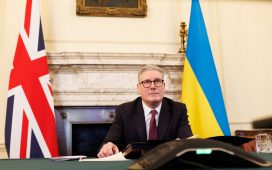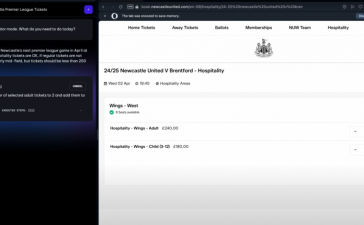There is “clear” Russian involvement in the far-right riots and security services will be looking closely at the instigators, a former head of the MI6 Russia desk has said.
Christopher Steele, the ex-spy who compiled a notorious dossier on Donald Trump’s relationship with Russia, said that security officials would be “looking very carefully” at the people encouraging anti-immigration riots in the past fortnight.
After a violent assault on a children’s dance class in Southport last month, rioters attacked mosques, police officers and a hotel in Rotherham housing asylum seekers. The unrest was whipped up by far-right activists online who falsely claimed that a Muslim immigrant was behind the attack.
Speaking to Times Radio, Steele said of the riots: “I think it’s clear there is some Russian involvement. The degree to which that’s happened and the effectiveness I think is still out for question. I mean, when you look at the original disinformation that surrounded the Southport killings, that does seem to have come from a Russian-linked website.”
The origin of the false claim about the Southport stabbing perpetrator appears to be an outlet called Channel3 Now, which is styled to resemble a mainstream American network news channel and mixes potentially AI-generated US and UK news material. This website posted spurious claims that the Southport attacker was “on the MI6 watch list” and was “known to mental health services”. This was amplified by prominent far-right influencers.
Steele said that the security services “will be looking very carefully at the instigators of these activities, including people like Tommy Robinson, even conceivably Nigel Farage, who incidentally said that we were being misinformed by the government about Southport”.
Robinson, the former leader of the English Defence League, whose real name is Stephen Yaxley-Lennon, has been posting reams of material on platforms including X praising anti-immigration protesters from his holiday in Cyprus.
Farage has come under fire for stoking conspiracy theories about the Southport attack by questioning “whether the truth is being withheld from us”. He has said he condemns “all acts of political violence”. The Guardian contacted Reform UK for comment.
Steele said security officials would be “looking at things like their travel movements, who they’ve been in touch with, monetary transfers, and so on, because that will reveal or not, as the case may be, a pattern of behaviour, which can lead to some conclusions about the degree to which Russia has been interfering in this situation”.
Asked whether MI6 would be looking at Farage’s movements and messages, Steele said: “The security services require warrants, obviously, to do some of that. But I think essentially, looking at communications, looking at travel, looking at financial transfers is the heart of this problem. And if we’re going to get to the bottom of it, certainly the government should be doing those things in terms of the instigators.
“Now, whether Nigel Farage in the end is defined as an instigator of this, I don’t know.”
The prime minister’s official spokesperson said last week that ministers were examining “the involvement of state actors” in the unrest.
“Clearly we have seen a lot of activity online, much of which may well be amplified, or have the involvement of state actors, amplifying some of the disinformation and misinformation that we’ve seen,” the spokesperson said. “And that is something that the NCA [National Crime Agency] and DSIT [Department for Science, Innovation and Technology] are looking at, in relation to what we’ve seen online.
“Some of the disinformation that we’ve seen online attracts amplification from known bot activity – which, as I say, can be linked to state-backed activity.”
Ministers have said they will re-examine laws about misinformation after online falsehoods contributed to the riots. Sadiq Khan, the London mayor, said the Online Safety Act that came into force last October but has yet to be fully implemented was “not fit for purpose”.
Under the legislation, social media companies face fines of up to £18m or 10% of their global turnover if they fail to take robust action against content inciting violence or terrorism.












